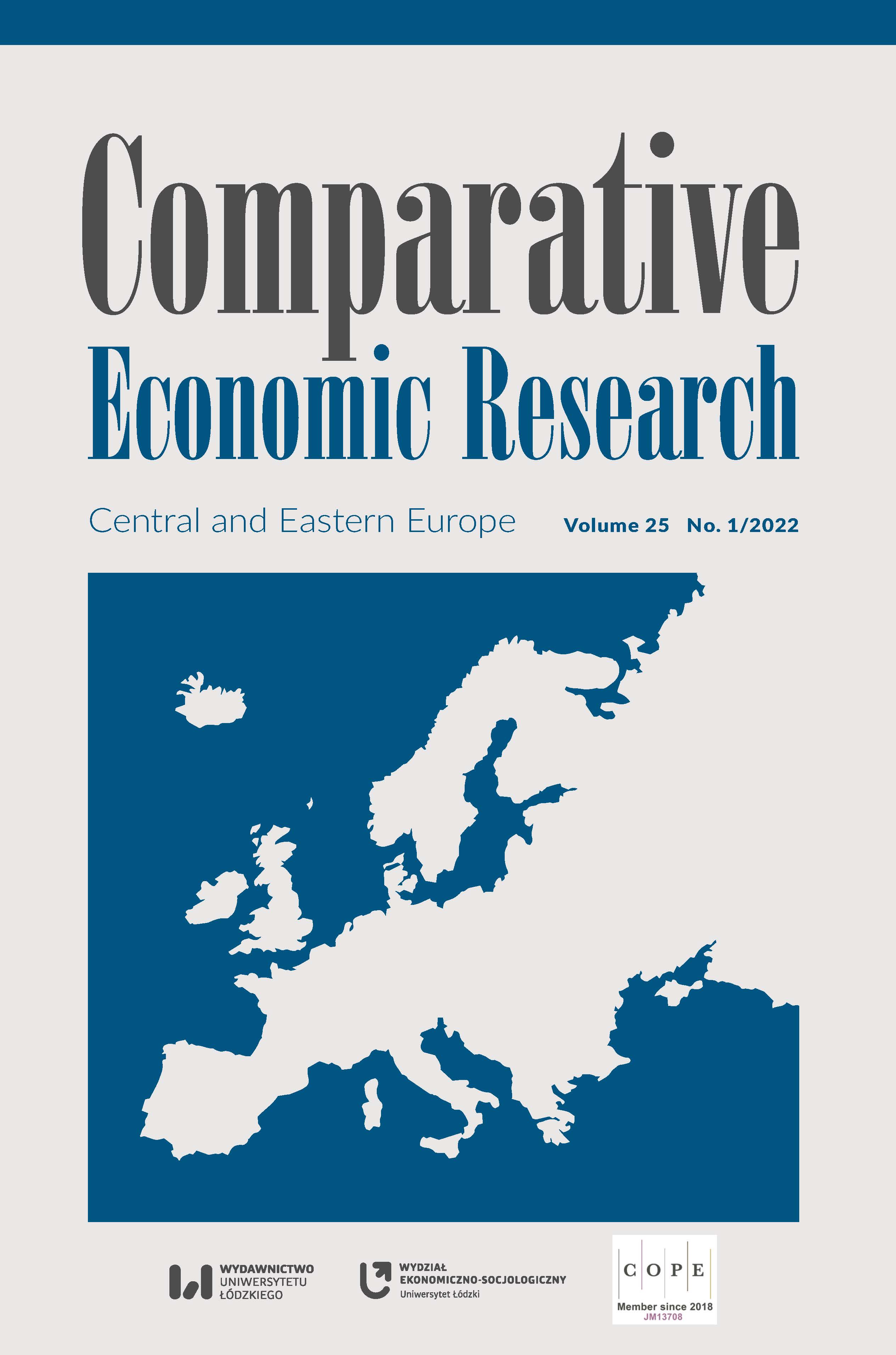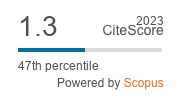National Business Cultures as a System‑forming Factor of the “Lublin Triangle”
DOI:
https://doi.org/10.18778/1508-2008.25.09Keywords:
national business cultures, comparative analysis, Lublin Triangle, Central and Eastern Europe, Poland, Lithuania, Ukraine, entrepreneurship, international integration, European UnionAbstract
Considering the evolution of the scientific knowledge on the topic the authors define “national business cultures” as a complex interdisciplinary basic phenomenon of modern comparative studies and international entrepreneurship. Using the accepted in the world comparative studies methodology – indicative parameters of national business cultures and considering the authors’ corresponding empirical developments a systematic comparative analysis of the national business cultures of the founding countries of the new cooperation platform in Central and Eastern Europe – the “Lublin Triangle” (Poland, Lithuania, Ukraine) – is carried out. The close similarity and wide complementarity of the national business cultures of these countries are revealed. This is largely predetermined not only by their common, centuries‑old history, but also by a number of other institutional and economic factors, as well as natural conditions. The priority sectors and spheres of integration of the three countries are determined both at the interstate level and at the level of the interaction of their business structures. Implementing this approach will ensure an increase in the competitive positions of Poland, Lithuania, and Ukraine and, as a result, the Lublin Triangle as a whole, in the system of the modern international division of labor. Based on the similarity and complementarity of the national business cultures, a group of other countries of Central and Eastern Europe (Latvia, Estonia, Slovakia, Romania, and Bulgaria) was selected. Under certain conditions, they could also become members of the Lublin Triangle, which would further strengthen and develop the European Union.
Downloads
References
Cohen, M. (2005), Why customers do what they do: Who they are, why they buy, and how you can anticipate their every move, McGraw‑Hill Education, New York.
Google Scholar
Deutscher, G. (2010), Through the Language Glass: Why the World Looks Different in Other Languages, William Heinemann Ltd., London.
Google Scholar
Erdman, K.M. (2017), An Analysis of Geert Hofstede’s Culture’s Consequences: Comparing Values, Behaviors, Institutes and Organizations Across Nations, Routledge, London, https://doi.org/10.4324/9781912128334
Google Scholar
DOI: https://doi.org/10.4324/9781912128334
Glinkowska, B. (2018), Internacjonalizacja polskich i ukraińskich przedsiębiorstw, Wydawnictwo Uniwersytetu Łódzkiego, Łódź.
Google Scholar
Glinkowska, B., Chebotarov, V.A. (2018), Comparative Cross Cultural Analysis of the Profile of a Modern Ukrainian Manager: The Imperatives of the Future in the Context of Internationalization, “Comparative Economic Research. Central and Eastern Europe”, 21 (3), pp. 63–74, https://doi.org/10.2478/cer-2018-0019
Google Scholar
DOI: https://doi.org/10.2478/cer-2018-0019
Glinkowska, B., Chebotarov, V. (2019), Establishing a business in Ukraine – the Initial regulatory organizational and legal aspects for Polish entrepreneurs, “Comparative Economic Research. Central and Eastern Europe”, 22 (1), pp. 75–86, https://doi.org/10.2478/cer-2019-0005
Google Scholar
DOI: https://doi.org/10.2478/cer-2019-0005
Glinkowska‑Krauze, B., Chebotarov, І., Chebotarov, V. (2020), Comparative studies of national business cultures in the countries of Central and Eastern Europe: the basics for Improving International entrepreneurship in Poland and Ukraine, “Comparative Economic Research. Central and Eastern Europe”, 23 (1), pp. 7–18, https://doi.org/10.18778/1508-2008.23.01
Google Scholar
DOI: https://doi.org/10.18778/1508-2008.23.01
Glinkowska‑Krauze, B., Kaczmarek, B., Chebotarov, V. (2020), Współczesne problemy zarządzania. Teoria i praktyka, Wydawnictwo Uniwersytetu Łódzkiego, Łódź, https://doi.org/10.18778/8142-054-9.01
Google Scholar
DOI: https://doi.org/10.18778/8142-054-9.01
Hampden‑Turner, Ch., Trompenaars, F. (2011), Riding the Waves of Culture: Understanding Diversity in Global Business, Nicholas Brealey Publishing, Hachette, London.
Google Scholar
Hofstede, G. (1984), National cultures revisited, “Asia Pacific Journal of Management”, 2 (1), pp. 22–28, https://doi.org/10.1007/BF01732507
Google Scholar
DOI: https://doi.org/10.1007/BF01732507
Hofstede Insights, Country comparison: Bulgaria, Estonia, Latvia, Romania, https://www.hofstede‑insights.com/country‑comparison/bulgaria,estonia,latvia,romania/ (accessed: 21.09.2020).
Google Scholar
Hofstede Insights, Country comparison: Lithuania, Poland, Slovakia, Ukraine, https://www.hofstede‑insights.com/country‑comparison/lithuania,poland,slovakia,ukraine/ (accessed: 21.09.2020).
Google Scholar
Hofstede Insights, Country comparison: Lithuania, Poland, Ukraine, https://www.hofstede‑insights.com/country‑comparison/lithuania,poland,ukraine/ (accessed: 21.09.2020).
Google Scholar
Hofstede Insights, National culture, https://hi.hofstede‑insights.com/national‑culture (accessed: 21.09.2020).
Google Scholar
Katan, D. (2014), Translating cultures: An introduction for translators, interpreters and mediators, Routledge, London.
Google Scholar
Lewis, R.D. (2019), The cultural imperative: Global trends in the 21st century, “Training, Language and Culture”, 3 (3), pp. 8–20, https://doi.org/10.29366/2019tlc.3.3.1
Google Scholar
DOI: https://doi.org/10.29366/2019tlc.3.3.1
Minkov, M., Hofstede, G. (2014), Clustering of 316 European regions on measures of values: Do Europe’s countries have national cultures?, “Cross‑Cultural Research”, 48 (2), pp. 144–176, https://doi.org/10.1177/1069397113510866
Google Scholar
DOI: https://doi.org/10.1177/1069397113510866
Mooij, M. de (2015), Cultural marketing: Maximising business effectiveness in a multicultural world, “Journal of Cultural Marketing Strategy”, 1 (1), pp. 11–18.
Google Scholar
Rapaille, C. (2019), Kod kulturowy. Jak zrozumieć preferencje współczesnego konsumenta, motywacje wyborców czy zachowania tłumu, Wydawnictwo MT Biznes, Warszawa.
Google Scholar
Rozkwitalska, M. (2018), Thriving in mono‑and multicultural organizational contexts, „International Journal of Contemporary Management”, 17 (1), pp. 233–247, https://doi.org/10.4467/24498939IJCM.18.013.8392
Google Scholar
DOI: https://doi.org/10.4467/24498939IJCM.18.013.8392
Rutkovska, K., Smetona, M., Smetonienė, I. (2017), Vertybės lietuvio pasaulėvaizdyje, Vilniaus universiteto, Akademinė leidyba, Vilnius.
Google Scholar
Downloads
Published
How to Cite
Issue
Section
License

This work is licensed under a Creative Commons Attribution-NonCommercial-NoDerivatives 4.0 International License.











